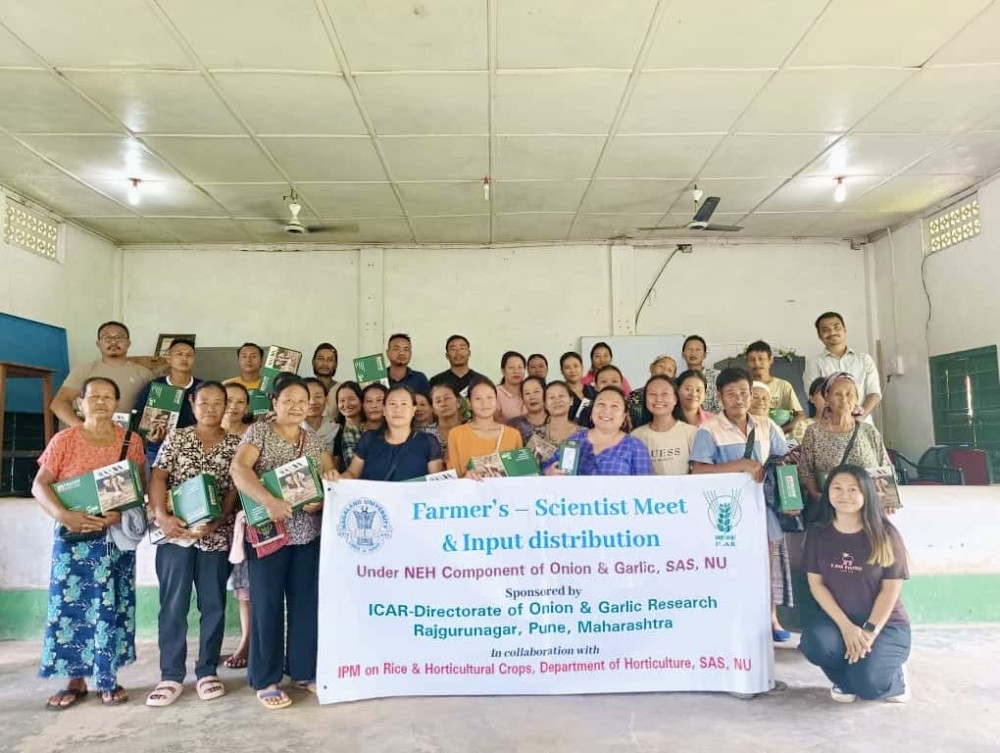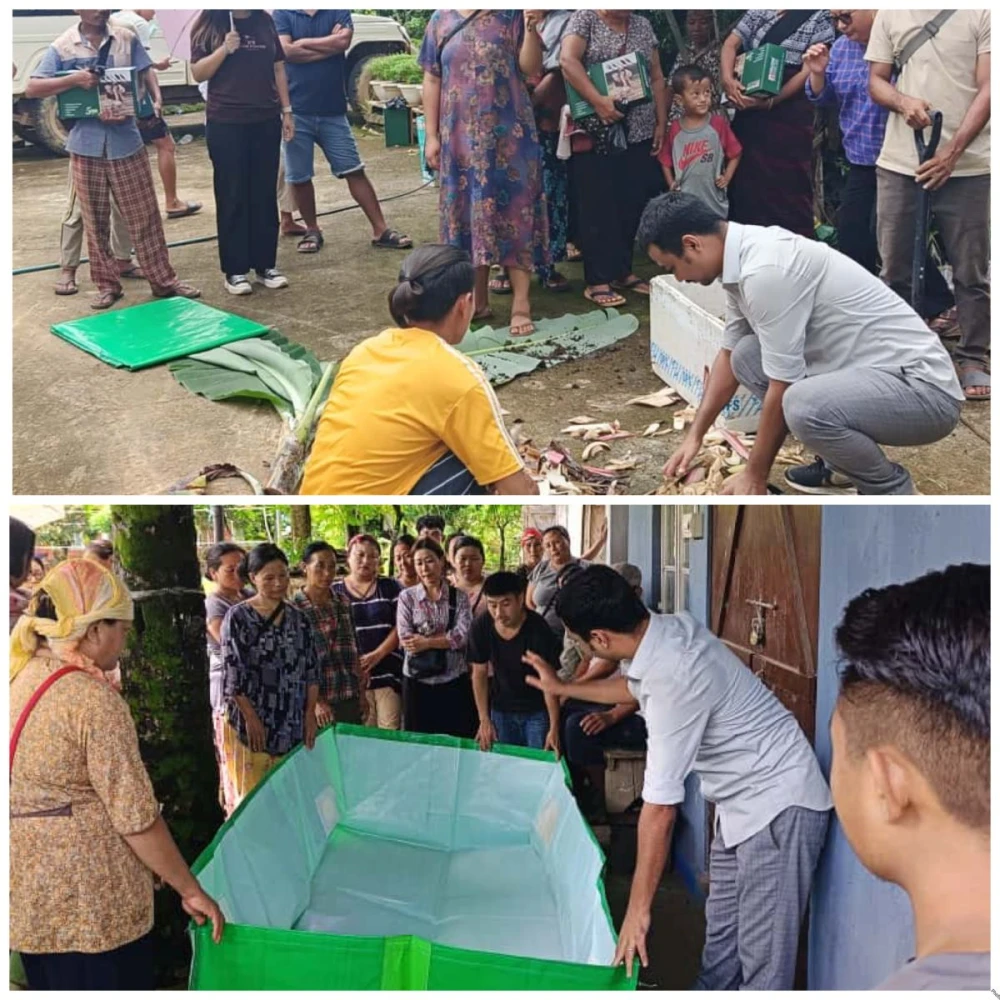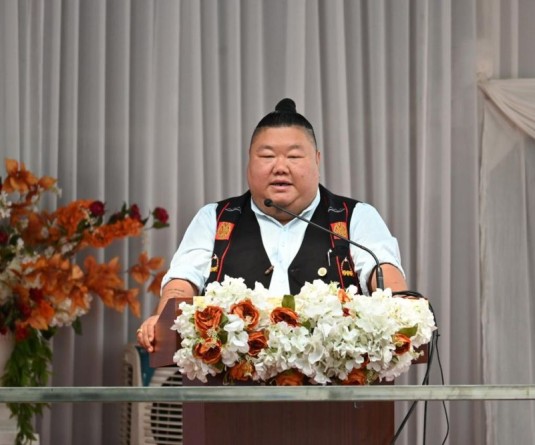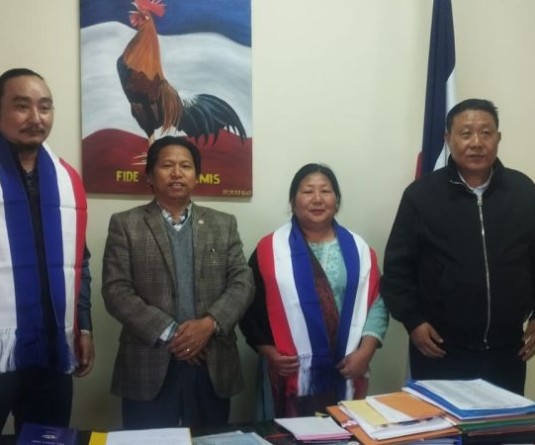The NEH Component of Onion and Garlic under the School of Agricultural Sciences (SAS), Nagaland University, organised farmers-scientist interaction programmes and input distribution camps at New Socünoma and Medziphema villages

MEDZIPHEMA, SEPTEMBER 18 (MExN): The NEH Component of Onion and Garlic under the School of Agricultural Sciences (SAS), Nagaland University, organised farmers-scientist interaction programmes and input distribution camps at New Socünoma and Medziphema villages this week.
The programmes were held at New Socünoma on September 17 and at Medziphema on September 18, bringing together around 100 farmers, scientists and agricultural experts to discuss sustainable practices in onion and vegetable cultivation as well as vermicomposting techniques.

A hands-on demonstration on vermicomposting was conducted by Ghimere, project assistant at STINER, under the initiative of Prof Akali Sema, nodal officer of STINER. Farmers were trained in setting up and managing vermicompost units as an eco-friendly method to enrich soil and support organic farming.
Dr Moakala Changkiri, scientist and project in-charge of the NEH Component of Onion and Garlic, encouraged farmers to adopt onion cultivation and vermicomposting as sustainable strategies to improve crop quality, increase yields and enhance soil fertility. She urged them to take up integrated farming and act as agents of change in their communities.
-Medziphema-village-bottom).webp)
To support adoption of these practices, farmers were provided with Falcon garden tool kits, including khurpi, hand rake, long shovel and root digger. Selected progressive farmers adopted under the project also received complete input packages for vermicomposting units, including portable vermi-beds, vermiworms, sprayers, neem oil and shovels.
On behalf of the farmers, New Socünoma village council member Mhiesilhoulie Meyase expressed gratitude to the NEH project and assured full cooperation in future initiatives.
Officials said the programme highlighted the importance of sustainable agricultural practices that not only improve productivity but also provide income-generating avenues. The adoption of vermicomposting is expected to reduce dependence on chemical inputs while enhancing soil health and long-term farm profitability, they added.





